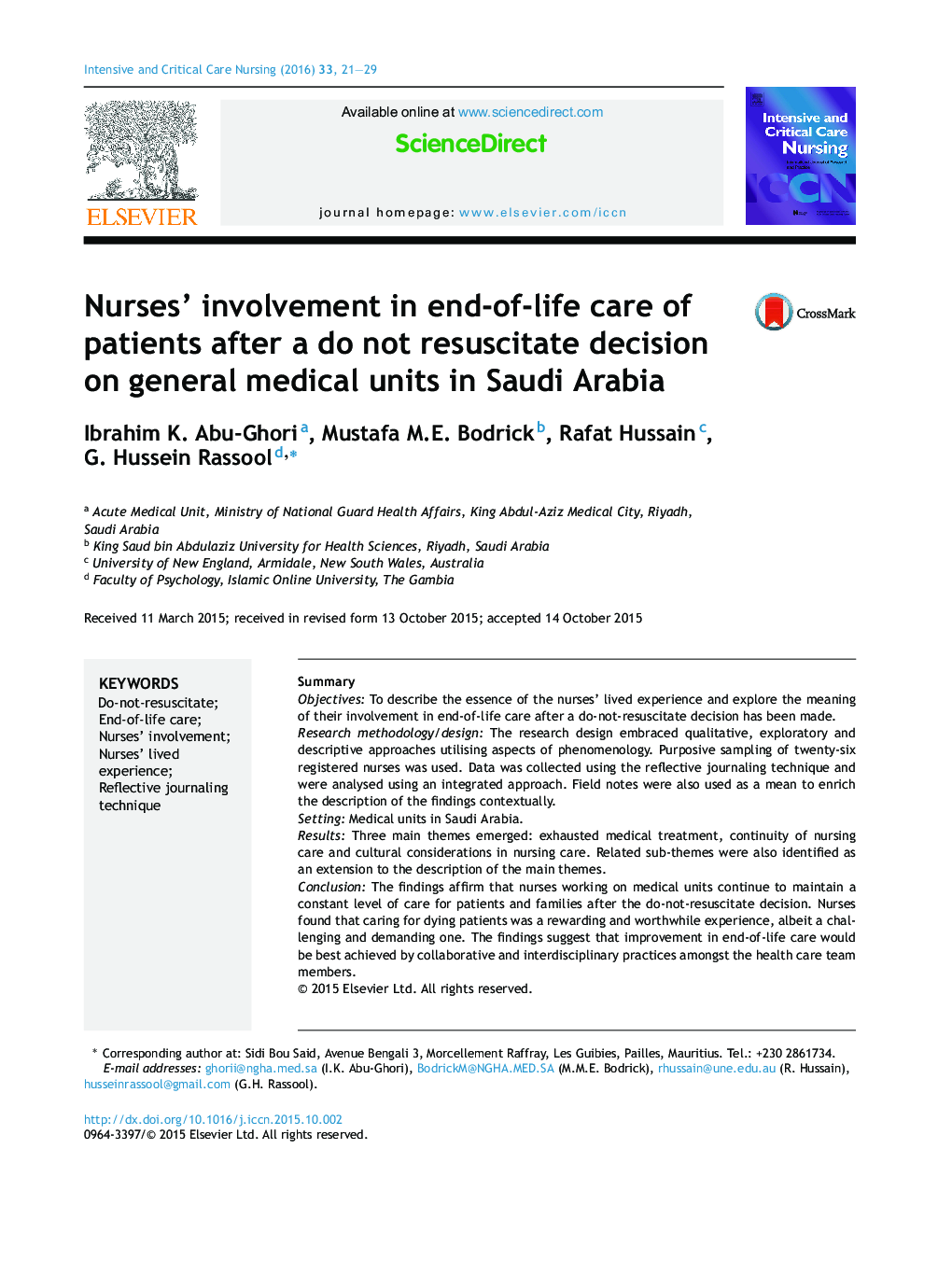| کد مقاله | کد نشریه | سال انتشار | مقاله انگلیسی | نسخه تمام متن |
|---|---|---|---|---|
| 2652085 | 1563949 | 2016 | 9 صفحه PDF | دانلود رایگان |

SummaryObjectivesTo describe the essence of the nurses’ lived experience and explore the meaning of their involvement in end-of-life care after a do-not-resuscitate decision has been made.Research methodology/designThe research design embraced qualitative, exploratory and descriptive approaches utilising aspects of phenomenology. Purposive sampling of twenty-six registered nurses was used. Data was collected using the reflective journaling technique and were analysed using an integrated approach. Field notes were also used as a mean to enrich the description of the findings contextually.SettingMedical units in Saudi Arabia.ResultsThree main themes emerged: exhausted medical treatment, continuity of nursing care and cultural considerations in nursing care. Related sub-themes were also identified as an extension to the description of the main themes.ConclusionThe findings affirm that nurses working on medical units continue to maintain a constant level of care for patients and families after the do-not-resuscitate decision. Nurses found that caring for dying patients was a rewarding and worthwhile experience, albeit a challenging and demanding one. The findings suggest that improvement in end-of-life care would be best achieved by collaborative and interdisciplinary practices amongst the health care team members.
Journal: Intensive and Critical Care Nursing - Volume 33, April 2016, Pages 21–29